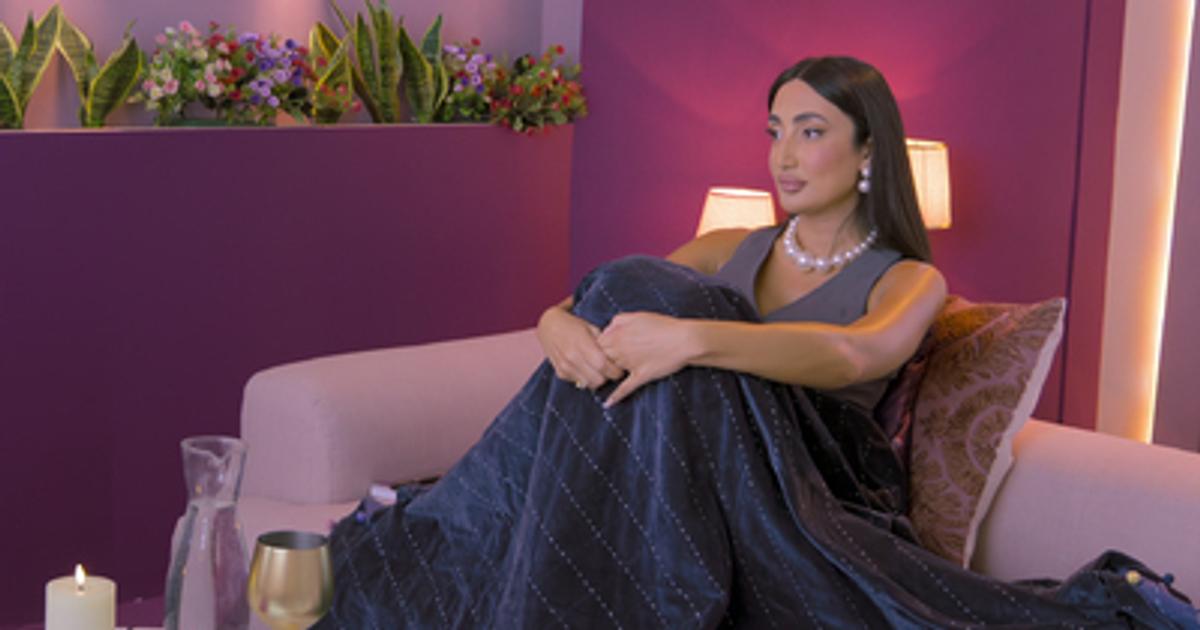
The Rising Star of Middle Eastern Reality Television: A Cultural Commentary on Love Is Blind: Habibi
In an age where reality television captivates audiences worldwide, Love Is Blind: Habibi, a UAE-based adaptation of the acclaimed Netflix series, has emerged as a cultural phenomenon. With its premise anchored in the complexities of modern romance, the show has not only gained considerable viewership but has also sparked discourse about love, identity, and cultural representation in the Arab world. The phrase “Ana [I] don’t do coffee dates,” from the show, has quickly become an iconic line, resonating with viewers and encapsulating the series’ engaging blend of humor and heartfelt moments.
Since its debut, Love Is Blind: Habibi has attracted millions, quickly soaring to the upper echelons of Netflix’s most-watched non-English programs globally. It has followed in the footsteps of 2022’s hit show, Dubai Bling, which unveiled a previously unseen world of wealth and social dynamics in the region. Both productions have highlighted an undeniable appetite for narratives featuring Arab individuals navigating the trials and triumphs of romance, ambition, and cultural heritage through a modern lens. Herein lies a significant cultural realization: audiences are eager to witness diverse Arab dialects and experiences portrayed authentically on a global platform.
Set against the vibrant backdrop of Dubai—a city that epitomizes a cosmopolitan hub—Love Is Blind: Habibi utilizes its environment to enhance the storytelling experience. This potent setting is more than just aesthetically pleasing; it serves as a stage for the show’s unfolding love stories. In one memorable moment, Lebanese-Senegalese cast member Chafic proposes to Saudi-Moroccan Dounia in the luxurious precincts of the Banyan Tree Dubai, effectively merging wealth, culture, and romance into a single picturesque moment. Such sequences not only allure viewers but also offer a glimpse into the burgeoning intersection of love and luxury in the UAE.
This compelling combination is reflective of the changes taking place across the region, particularly in how traditional values intermingle with contemporary life. The show serves as a microcosm of broader social dynamics happening within the Gulf States. A significant aspect of this shift is the growing liberalization and acceptance of diverse expressions of love, identity, and social interaction within conservative frameworks. In a region where societal norms can often appear rigid, programs like Love Is Blind: Habibi push boundaries, fostering conversations about expectations surrounding love and marriage in the modern Arab context.
Moreover, the show’s reception is notably indicative of a larger trend involving regional reality television. Platforms are beginning to recognize and invest more in original Arab content—aiming to tell stories that reflect the lifestyle, aspirations, and cultural nuances of the Arab population. The success of Love Is Blind: Habibi may inspire further explorations into this genre, inviting more varied narratives that explore the vibrancy of Arab lives and identities.
However, the increasing prominence of pop culture phenomena like Love Is Blind: Habibi also raises questions about authenticity and representation. How accurately do these portrayals reflect the complexities of love in Arab societies? Are they romanticized versions of reality, or do they serve to illuminate hidden stories and struggles? This duality invites critical examination and discussions, reinforcing the notion that entertainment often dances along the delicate lines of truth and hyperbole.
In conclusion, Love Is Blind: Habibi occupies a tantalizingly unique position at the intersection of entertainment and social commentary. As the show continues to gain traction, it has the potential to reshape perceptions of Arab culture, showcasing the rich tapestry of love and identity within its diverse societies. As audiences indulge in the captivating narratives unfolding on-screen, they also find themselves contributing to a larger conversation: one that celebrates the nuanced, ever-evolving nature of love amid rich cultural tapestries.
As technology advances and more viewers turn to global platforms for entertainment, Love Is Blind: Habibi stands as a testament to the power of storytelling in connecting people across distances, cultures, and experiences.
Tags:
#UAE #PeopleCultureNews #RealEstateNews #StartupsEntrepreneurship

